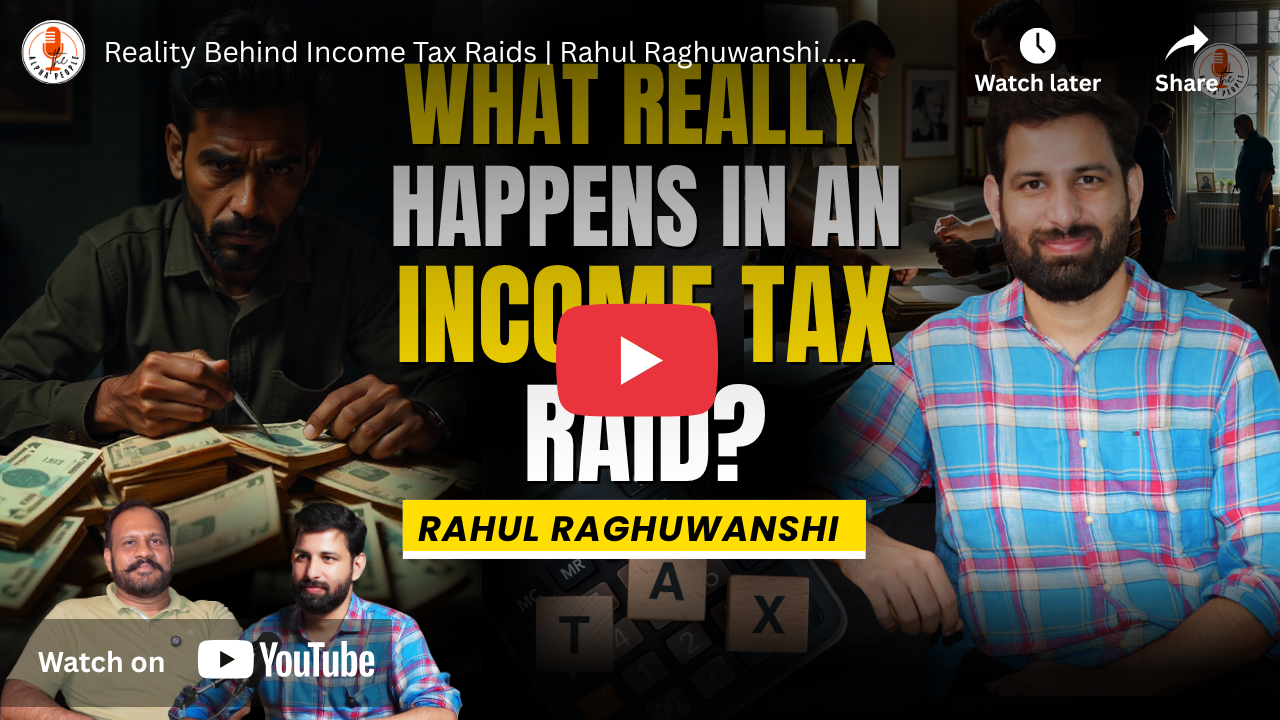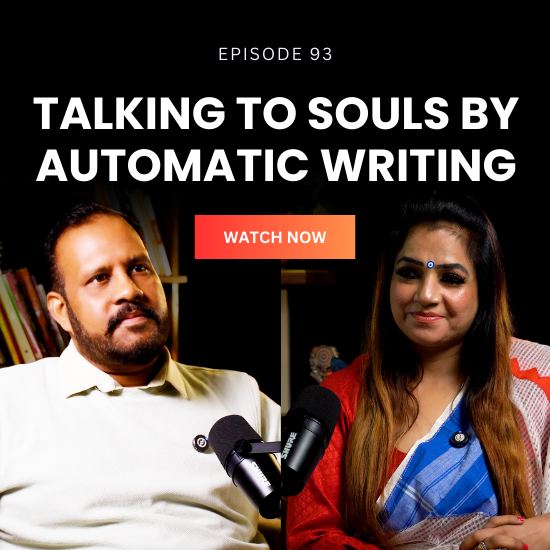The podcast featuring Rahul Raghuwanshi, an Income Tax Officer and motivational app creator, presents an engaging mix of personal growth, government service, and psychology. The conversation begins with light-hearted exchanges about his name and movie-like image before moving into deeper reflections on discipline, procrastination, and purpose. Rahul shares how he transformed from an inconsistent student into a methodical officer by shifting focus from perfection to progress—an insight that became the foundation of his later ventures in motivational content and app development.
Rahul explains how his struggle with procrastination inspired him to study behavioral and cognitive psychology, leading to the creation of his own framework based on belief-breaking. By challenging the idea of “perfect or nothing,” he achieved consistency in studies and work. This understanding evolved into his digital venture, Thinking Machines, and an allied mobile app that applies Cognitive Behavioral Therapy (CBT) principles to reform mental habits through micro-actions and activities like “Mini Wins.” His app gamifies self-improvement by rewarding consistency rather than outcomes, helping users find joy in the process instead of obsessing over results.
A major segment of the podcast explores Rahul’s role in the Income Tax Department, offering rare insight into what actually happens behind the scenes. He demystifies stereotypes shaped by movies, explaining that while real-life raids occur, they are the product of data-driven investigation, planning, and legal checks—not cinematic aggression. He describes the structure of his department, the nature of NGO exemptions, and the gradual automation of taxpayer assessments under the Faceless Assessment Scheme, emphasizing transparency and integrity in public service.
The conversation also touches on his dual identity as a government officer and social media educator. He explains how existing rules under the Central Civil Services (Conduct) Rules, 1964 restrict officers from public commentary, yet he continues to make awareness-based content that portrays civil service realistically without breaching confidentiality. His openness has occasionally attracted departmental scrutiny, including suspension, which he uses as a learning point about public perception and the importance of responsible expression in digital spaces.
Toward the end, Rahul speaks candidly about his personal challenges, particularly those in his early marriage. He shares how youthful immaturity and constant conflict taught him pattern recognition—the ability to step back, notice repetitive emotional cycles, and consciously choose peace over argument. These experiences shaped his emotional maturity and resilience, showing listeners that self-development must include emotional intelligence, not just professional success. The conversation closes with warmth and humor, positioning Rahul as a relatable bridge between bureaucratic realism and humane introspection.
Overall, the podcast offers an intimate portrait of a man who blends discipline, compassion, and logic. It shows how psychological insight and spirituality can coexist within a demanding government role. Rahul’s reflections illustrate that purpose-driven consistency—not perfection—is the true secret to fulfillment, whether in public service, personal life, or inner transformation.
🔔 Don’t forget to subscribe & share if this conversation resonated with you!
🔔 Don’t forget to subscribe & share if this conversation resonated with you!
Frequently Asked Questions
Certainly! Here are some potential questions and answers based on the podcast conversation:
The real change happened when I stopped chasing perfection and focused only on completion. Earlier, my mindset was “do it perfectly or don’t do it at all.” Once that belief broke, I started being consistent, and everything else improved naturally.
I realized motivation fades quickly. So, I created an app based on Cognitive Behavioral Therapy (CBT) that helps users identify and change their limiting beliefs. It uses small daily “mini-wins” and gamified rewards to help people fall in love with the process, not just the result.
There are heavy restrictions under the Central Civil Services (Conduct) Rules of 1964. Officers can’t publicly represent their departments. I make sure my content doesn’t expose internal work but instead educates people about the system and self-development responsibly.
Yes, they are similar—but only in setup, not drama. My first raid in Panchkula involved police vans, team coordination, and tight planning. The difference is that in real life, everything follows strict legal and procedural steps, not the exaggerated show you see on screen.
To eliminate human bias and corruption. Now, officers don’t know the taxpayer personally. The system randomly assigns cases, which means transparency and fairness. It helped rebuild public trust in the Income Tax Department.
We verify if they truly conduct charitable activities. If not, our job is to write such a strong, fact-based order that even the courts can’t overturn it. It’s about legal precision, not emotion.
The system today is rule-bound. You can’t favor anyone even if they’re known to you. There’s accountability at every level, making it nearly impossible to manipulate.
My early marriage. We used to argue often, but I gradually realized we were repeating emotional patterns. Over time, we learned to identify the trigger moments and consciously break the cycle—that’s emotional intelligence in action.
Because they live in the future, not in the present. They dream of big results but ignore small daily progress. When you start noticing your “mini-wins” — like studying for 30 minutes sincerely — consistency builds naturally, and motivation stops being a problem.
Don’t aim to be perfect — aim to be consistent. Focus on your efforts, not the outcomes. As the Bhagavad Gita says, perform your actions without attachment to results. Consistency and sincerity will take you further than perfection ever could.






